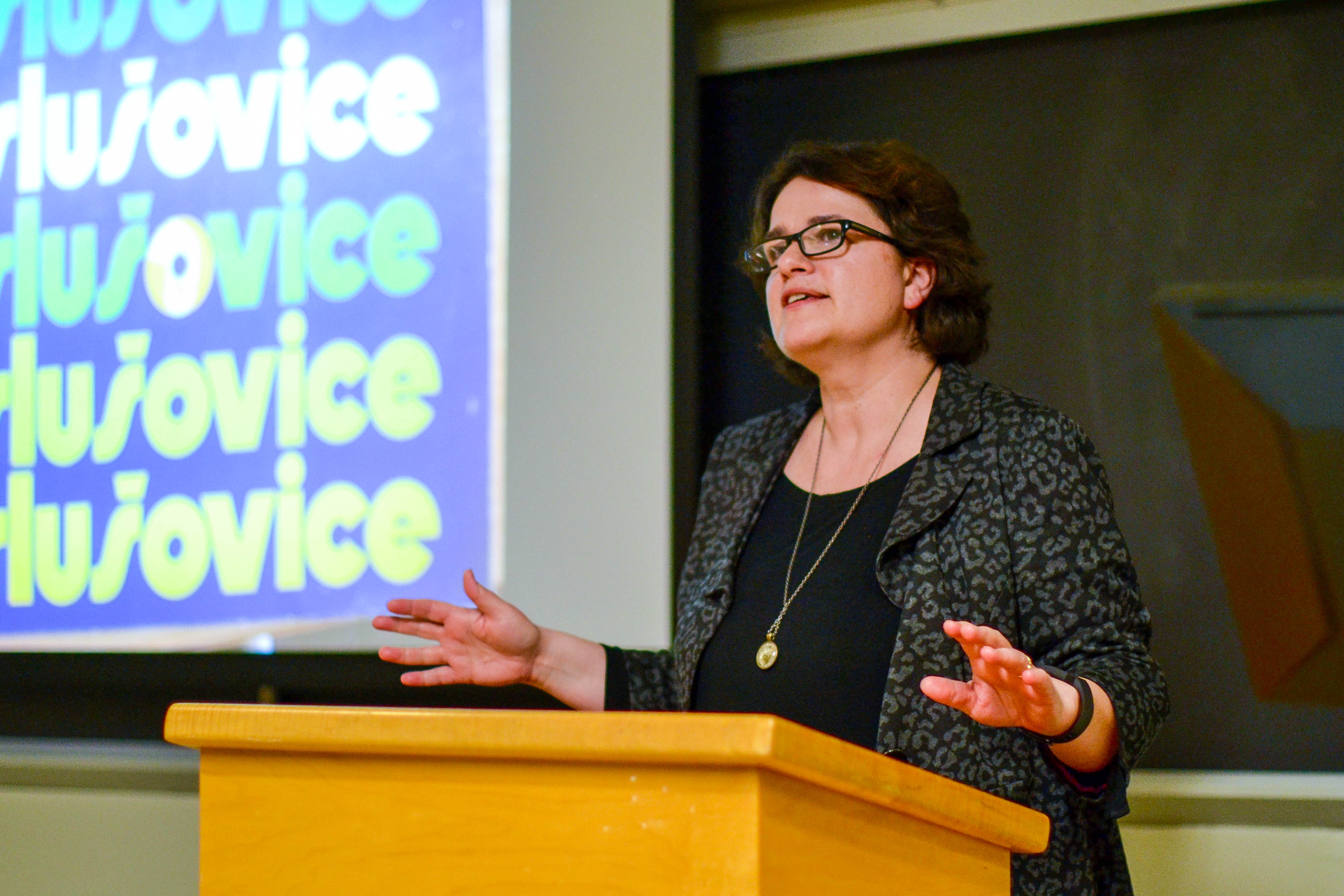Adjunct Assistant Professor of International Studies at Vassar College Paulina Bren discusses what life under late Communism may have been like.

Caroline Kravitz, Staff Photographer
This past Wednesday, Feb. 24, Adjunct Assistant Professor of International Studies at Vassar College Paulina Bren gave a talk on her past academic work, primarily concerning what it was like to live in the era of late communism, as well as her current projects. The lecture was followed by a question and answer session.
Bren began the talk by reminiscing on her times at the University, having graduated in 1987. She further spoke about her decision to join the College of Letters (COL), attributing her choice to her freshman year roommate.
“Membership to COL came with a single in Butts C, and it turned out pretty well,” Bren said.
Bren then moved into the discussion of late communism, a period that often is not discussed. What happened after the statue of Stalin in Prague had been obliterated? What happened after Stalin was recognized as a villain? For a while, the space was left empty.
“[The emptiness] spoke to the confusion of what communism was to be,” Bren said. “It is also a metaphor for the absence of scholarship on late communism.”
Bren marks late communism as having begun around 1968, the year of the Prague Spring. Bren made sure to emphasize that when historians study this time period, they focus mainly on the dissidents that left behind a tangible legacy.
“[In history], we rely on the artifacts left behind,” Bren said. “Dissidents were leaving a paper trail.”
The 99 percent of the population that was not composed of dissidents, however, was a completely different story. To study the masses of this time period, historians turn to television. The new accessibility of the television was a shared Eastern and Western experience that separated late communism from earlier periods.
“How does TV give a view on late communism?” Bren asked. “It was accessible to everyone and it was regime-engineered.”
She then proceeded to trace the bumbling process of the regime trying to figure out what to do with television. It was the bane of the regime’s existence and a great shining hope all at once. In the years following 1968, the regime began to harness the powers of the television to give a layout of what expectations the regime had for its citizens. It was a large factor in normalizing the absurdity of late communism.
“[TV serials] would showcase normal characters with regime-friendly interactions, [and citizens] were receiving word of what would be rewarded and what behaviors would be punished,” Bren said.
Bren focused on one Czechoslovak screenwriter in particular, Jaroslav Dietl, whose shows played a defining role in late communist television. His shows featured normal characters—for instance, a chef or a doctor—in everyday situations. They were not political; however, they served to display the powerlessness of citizens living in communism. In his show about the character Chef Svatopluk, audiences were able to vote on what action the main character would take in certain scenarios, given the illusion of choice and enforcing what the regime referred to as simultaneously lived private worlds.
“The choice was there, but it was meaningless,” Bren said. “You vote in, then they would move along as if it didn’t happen.”
Bren then moved on to discuss her current project researching Nové Slušovice for her next book called “Wonderlands,” a farm cooperative on nationalized land that was seen as a “socialist Disneyland.” Although the workers’ kids were taken care of, living conditions were nice, and employees could travel outside of Czechoslovakia, there was still an air of corruption beneath the surface.
Bren is working on uncovering the mysteries that surround this establishment, as all archival documents on the operation have been destroyed due to water pipes bursting, and only the secret police files remain intact. By examining Nové Slušovice, she hopes to ask whether corruption was a different creature under communism.
In the end, Bren spelled out three things she wanted audience members to take away from the discussion.
“I hope I have persuaded you of at least three things: The second half of communism needs to be treated differently,” Bren said. “Next, political dissidence is merely one part of a much larger story, and lastly, while we all like to imagine we’d be dissidents under these circumstances, in all likelihood we would be stealing office supplies and watching TV.”
Bren is the author of the award winning book, “The Greengrocer and His TV: The Culture of Communism after the 1968 Prague Spring,” one of the first books of its kind addressing Communism in Czechoslovakia. Bren is also the co-editor of “Communism Unwrapped: Consumption in Cold War Eastern Europe” and is known for writing articles on the culture of politics and everyday life in Eastern Europe.